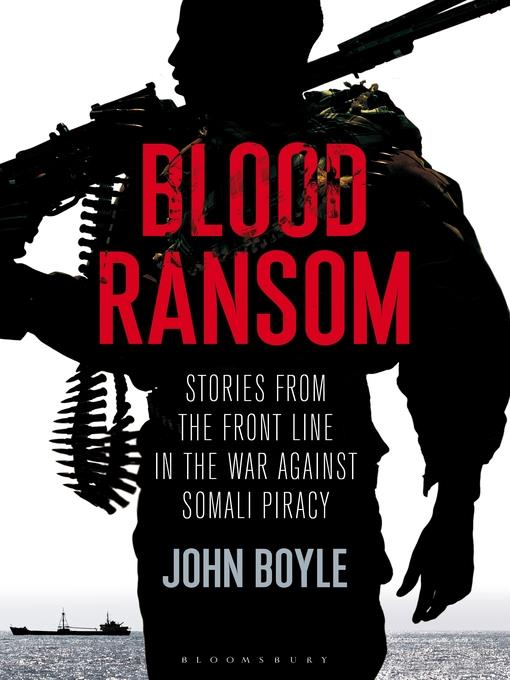
Blood Ransom
Stories from the Front Line in the War against Somali Piracy
کتاب های مرتبط
- اطلاعات
- نقد و بررسی
- دیدگاه کاربران
نقد و بررسی

May 4, 2015
Filmmaker Boyle attempts to unravel the complicated circumstances surrounding the sea-going scourge of Somali piracy in this intriguing study. Through numerous interviews, he examines the issues from all sides, exploring everything from the evolution of Somalia as a haven for piratical activities to the efforts taken to prevent, combat, and prosecute the perpetrators. “For as long as men have gone to sea in boats, there have been other men in boats looking to attack and rob them,” he states. But Boyle wants to know why, and so expends considerable effort to obtain a first-hand perspective from the pirates themselves. There’s a grudging respect in his tone as he explains what drives desperate men to attack and hijack boats for ransom, even as he separates the brutal reality from the whitewashed fantasies and condemns the pirates for inhumane treatment of their prisoners. As he notes, Somali piracy has evolved from a reaction against outside influences plundering their vulnerable waters to an ambitious business structure where minimal investments yield potentially high paydays. He also examines how businesses and governments are confronting piracy, using drones and warships as well as legal restructuring; but while individual battles may be won, the war continues. This thorough analysis is enlightening.

May 15, 2015
What movie is in heavy rotation on DVD players in Mogadishu? Why, Captain Phillips, of course. And perhaps Black Hawk Down, too. One consequence of Somalia's being the poster child for libertarianism, writes documentary filmmaker Boyle, is that there is no effective government to stand up to the looters-not hungry Somalis but the fishing fleets from around the world that "have operated down the Somali coast unpoliced, unregulated and without licenses, for the best part of two decades." Against these massive modern fishing fleets, Somalis with small boats and hand nets didn't have a chance, and an estimated $300 million in fish was taken from Somali waters. Add to that illegal dumping of industrial waste-including nuclear waste-and it's small wonder that Somalis are ticked off and ready to act on their anger by boarding those foreign vessels and taking a piece of the action. But how extensive is Somali piracy? The answer depends on whom you ask: an insurance company would say it's epidemic, the State Department would say it's under control, and the statistics go up and down depending on the intensity of anti-piracy measures. According to the British naval officer in charge of the intelligence-led interdiction program, "Somali piracy really spiked in 2008 and got the world's attention." The problem is ongoing, Boyle notes, but so is the rapaciousness of the foreign fleets-and piracy offers itself as one of the few growth industries in a country without much promise, such that "many more want to go out to sea than actually get asked." Drawing on extensive interviews with aid workers, U.N. officials, naval personnel, and pirates themselves, the author pieces together a thoroughly well-constructed, swiftly paced account of what has become an intractable problem. An eye-opening look at what would seem a localized phenomenon but that has implications for developed-developing world encounters generally.
COPYRIGHT(2015) Kirkus Reviews, ALL RIGHTS RESERVED.

























دیدگاه کاربران